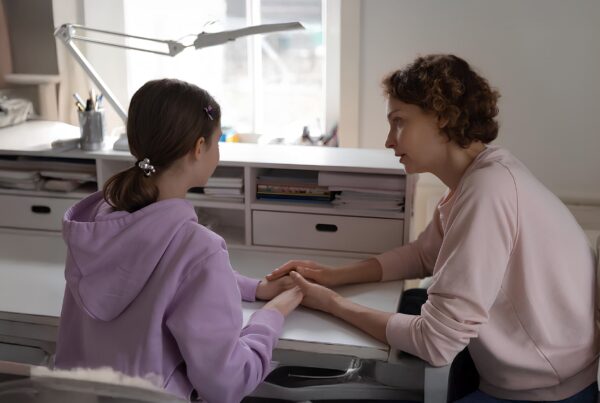Jenni Thomas OBE, Grief Counsellor and RSF Support Advisor, shares 10 helpful insights for parents faced with an incurable diagnosis.
If you have recently learned that the cancer you have been diagnosed with cannot be cured, you may be concerned about whether to tell your children and what you need to tell them.
What to say to your children and how to say it will depend on the age and their ability to understand.
You and those closest to you may have different views on how to communicate with your child. However, if there are two parents, it will give your child peace of mind knowing that you and your partner agree on what you are saying.
Talking to your children about not having long to live is the hardest conversation any parent will have.
Before you talk to your child, give yourself time to think through what you will say and get support for yourself.
Think about the impact it will have on you as well as them. Talk it through first with your partner or someone you trust.
Evidence suggests that if this difficult conversation is approached in the right way, it is helpful for both children and parents.
”"The following guidance is what dying parents with children have said they found useful when talking to their children."
Jenni Thomas
10 Support Steps
If after reading through the above guidance of how to talk to your children about your incurable diagnosis you haven’t found the support you are looking for, and your family needs further support on how to talk to your children, please contact the Ruth Strauss Foundation for more information regarding pre-bereavement guidance.
”Every day families with dependent children come face to face with terminal cancer diagnoses. It was Ruth's belief that professional emotional support helps families remain connected: by communicating open and honestly with your children, families can embrace a parent's final journey together.
Ruth's visionRSF Support Mission



